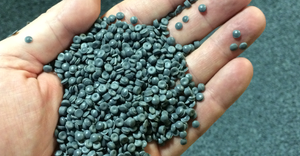Fast Food, Consumer Goods Firms Fall Short on Recycling -- Study
Few food retail and consumer goods companies have strong packaging recycling or sustainability practices, according to a new report by two environmental advocacy groups.
The study by the New York-based Natural Resources Defense Council (NRDC) and Oakland-based As You Sow reviews the packaging practices of 47 fast food, beverage and consumer/grocery companies.
For example, plastic packaging is the fastest growing form of packaging in U.S., in a large part because of the popularity of fast food and consumer beverages, but only 14 percent of the material is recycled. That contributes to an overall waste of $11.4 billion in potential recycling revenue annually, according to “Waste and Opportunity 2015: Environmental Progress and Challenges in Food, Beverage and Consumer Goods Packaging.”
None of the 47 companies achieved the report’s highest status of “Best Practices,” according to a news release.
The report states that more brand leadership is needed to boost lagging U.S. recycling rates and enhance the sustainability of packaging.
Among fast food/quick service restaurants (QSR) only the small food chain Pret A Manger offers front-of-house recycling and composting at all its 60 U.S. locations. Starbucks is the only other firm that has aggressively sought that recycling option for its packaging.
The report gave positive reviews to several consumer goods companies for taking proactive steps on recycling. Those include Walmart, Procter & Gamble, Colgate-Palmolive and Unilever.
“We found that most leading U.S. fast food, beverage and packaged goods are coming up significantly short of where they should be when it comes to the environmental aspects of packaging,” said Conrad MacKerron, senior vice president and report author. “These companies have not sufficiently prioritized packaging source reduction, recyclability, compostability, recycled content and recycling policies. Increased attention to these key attributes of packaging sustainability would result in more efficient utilization of postconsumer packaging, higher U.S. recycling rates, reduced ocean plastic pollution and new green recycling jobs.”
About the Author
You May Also Like


